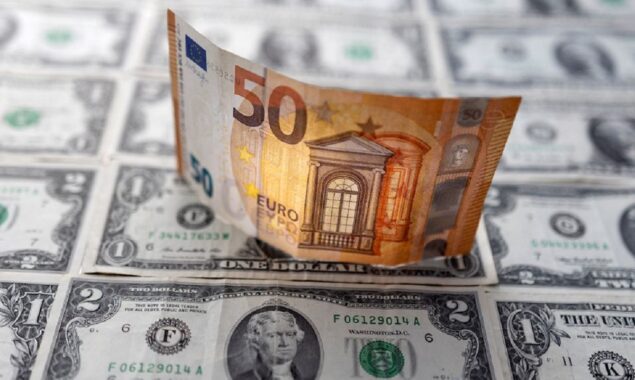As traders evaluate global economy, European stock increase
European stock markets jumped 0.7%, with London's FTSE 100 adding 1.0% and...

Euro slides to two-decade low as recession fears mount. (credits: Google)
On Tuesday, the euro fell to its lowest level against the dollar since late 2002 as data revealed a severe slowdown in regional company growth in June and a rise in natural gas costs rekindled concerns about the euro zone economy.
Tuesday was proving to be a considerably more turbulent afternoon after U.S. markets were closed on Monday due to a holiday, with stocks reversing early gains and euro zone bond yields plunging as investors sought safety in government paper.
Concerns over a European energy deficit have increased with the discovery that offshore workers in Norway started a strike on Tuesday that will restrict oil and gas production.
The euro’s value versus the dollar fell as much as 1.3 percent to $1.0281, its lowest level since December 2002. Its value against the Swiss franc fell by 0.9 percent to 0.9925 francs, the lowest level since 2015.
The dollar index surged 1.1 percent to 106.26, reaching a record high for the currency over the past two decades. Investors rush to buy the dollar when there is severe economic uncertainty.
“Everyone is preparing for the shutdown of Nord Stream, and Russia has already hinted that they will use it as a weapon. Consequently, this is seriously hurting German manufacturing’s ability to compete “said Jordan Rochester, a Nomura currency analyst.
Germany has significantly more manufacturing, therefore there will be rationing and a decline in the competitiveness of the euro region, which will result in reduced exports.
As the cost of living problem keeps consumers on edge, survey data released on Tuesday showed that business growth in the euro zone slowed down even more last month. Looking ahead, evidence suggested that the region may even experience a contraction this quarter. View More
The rise in natural gas prices elsewhere dampened investor confidence, erasing previous euphoria about indications of lessening U.S.-China trade tensions, and stock markets gave up early gains.
Wall Street appeared to be in for a softer opening. Germany’s DAX (.GDAXI) plummeted 0.9 percent, while the Euro STOXX (.STOXX) was last down 0.55 percent. The FTSE 100 decreased by 1.1%. (.FTSE).
The MSCI World Index (.MIWD00000PUS) fell 0.31 percent, but it is still 3 percent above June’s 18-month lows.
[embedpot slug=”eur-to-pkr-euro-to-pkr-exchange-rates-on-july-5-2022/”]
Catch all the Business News, Breaking News Event and Latest News Updates on The BOL News
Download The BOL News App to get the Daily News Update & Follow us on Google News.